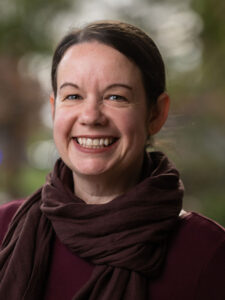What is Adaptable Resolution?
Adaptable Resolution processes allow those who have experienced harm or conflict to determine and shape their own process(es) and outcomes with professionally facilitated assistance. Adaptable resolution utilizes restorative practices by focusing on the needs of those involved. When appropriate and helpful, adaptable resolution promotes trust-building and relationship-building, as well as attention to the broader impacts that harm and conflict can have in a university community.
It is voluntary and optional for all parties. Adaptable Resolution is a non-disciplinary process that is separate from investigative resolutions. Any participant may discontinue the process at any time.
Adaptable Resolution processes are flexible and can include but are not limited to:
- Consultations
- Coaching
- Facilitated conversations
- Restorative justice processes
- Shuttle processes
For more information about these options visit the process page.
Requesting Adaptable Resolution
Adaptable Resolution may be requested to address a wide range of campus concerns, including:
- Discrimination
- Harassment
- Sexual and Gender-Based Misconduct
- other harm or conflict in the University community that may or may not fall under University policies
Please note: For concerns that may fall under university or federal policies (e.g. Title IX) the ECRT directors must approve the use of adaptable resolution. Adaptable Resolution facilitators are not individuals with reporting obligations.
Adaptable Resolution services can be requested by contacting ECRT to speak with an equity specialist.
The adaptable resolution lead is available for brief consultations with those who would like to learn more.
Adaptable Resolution and Restorative Practices Lead
 Carrie Landrum supports faculty, staff, and students when harm has impacted an individual or the campus community by facilitating restorative, adaptable resolution for campus concerns related to discrimination, harassment, sexual and gender-based misconduct, and other forms of harm. Carrie also assists with community care and support in a holistic approach in responding to sexual and gender-based misconduct. Carrie has been forging pathways to peace and facilitating healing justice using restorative practices at UM since 2007. Carrie’s background includes studies and training in international studies (Emory University); conflict transformation (Wayne State University); and peacebuilding, trauma healing, and restorative practices (Eastern Mennonite University).
Carrie Landrum supports faculty, staff, and students when harm has impacted an individual or the campus community by facilitating restorative, adaptable resolution for campus concerns related to discrimination, harassment, sexual and gender-based misconduct, and other forms of harm. Carrie also assists with community care and support in a holistic approach in responding to sexual and gender-based misconduct. Carrie has been forging pathways to peace and facilitating healing justice using restorative practices at UM since 2007. Carrie’s background includes studies and training in international studies (Emory University); conflict transformation (Wayne State University); and peacebuilding, trauma healing, and restorative practices (Eastern Mennonite University).

